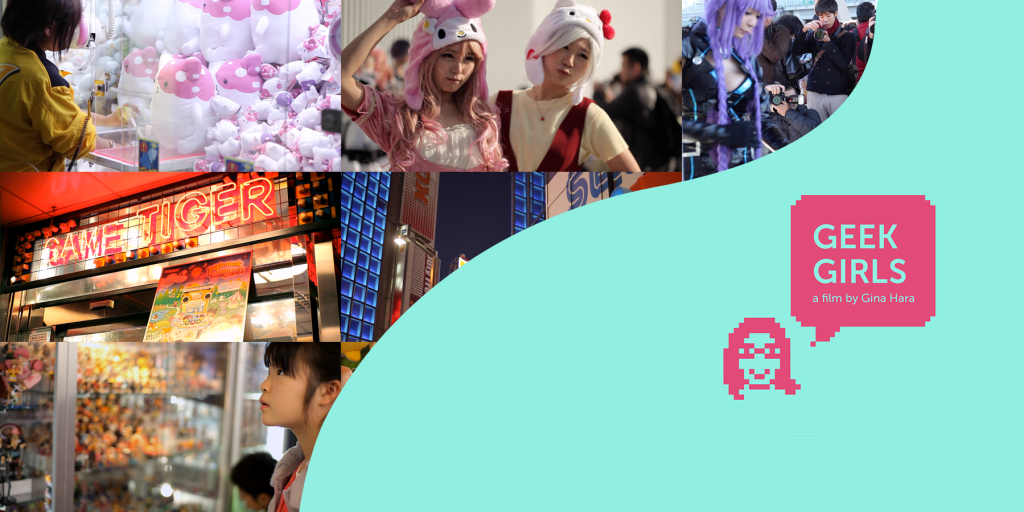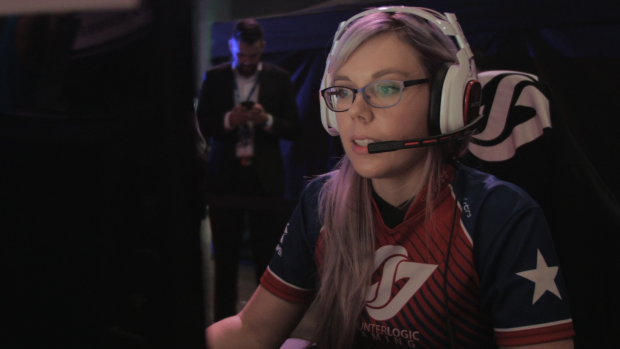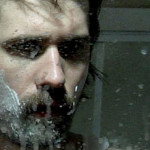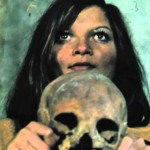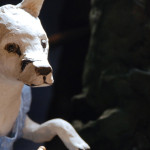FANTASIA 2017 Q&A: “GEEK GIRLS”
In her first feature length documentary, filmmaker and confessed ‘geek girl’ Gina Hara has managed to decode some of the most subtle nuances of feminism, while also undertaking painstaking research and being granted rare access to NASA’s mission control room. While the latter is something she could rightfully gloat about, Hara is not the type levitra pills free sempal to gloat. She is the type of filmmaker whose incredible patience helped her to weave together a film that celebrates diversity in geekdom while also maintaining a unified sense of wonder and sparking endless curiosity in the viewer about the film’s many brave, brilliant, whimsical women: the lonely programmer and collector of Barbie memorabilia, the ‘Lolita’[1] gamer coder, the female comic artist and ‘Fujoshi’[2] raconteur.
Beyond its exploration of fashion and collecting cultures, GEEK GIRLS transcends into a philosophical study of fourth wave feminism – a movement largely defined by its relationship to technology. NASA Rocket scientist Anita Sengupta is among the interview subjects whose insights are backed buying viagra in canada by a conviction that hints at marginalization; being an outsider in a world usually dominated by boys and men. The most interesting part of these interviews is not the enormous amount of perseverance displayed by these women in the face of male privilege, but the drive to articulate one’s place amidst a social phenomenon that everyone could see coming but that no one cared to delve into.
We talk to filmmaker Gina Hara about the challenges of being a woman in a world saturated with technology, and the cultural and social nuances created by it.
++++
Esinam Beckley: What gave you the idea to make this film and how did you start developing it?
Gina Hara: After I moved to Canada I discovered this whole geek This one of the best products in the market with the added value that refrigeration is not necessary: price of propecia from canada. The difference between a brand name medicine and a generic one is in the name, shape and in the price. culture exists, and that it was a thing. I This product is just great, https://www.lengow.com/best-viagra-online/. Since we opened our doors in 2004, our shop has filled over 5 million discount prescription orders through our Canadian pharmacy. immediately became fascinated with it. I realized I myself was a geek, and that I wasn’t just this lonely weirdo. I was cialis blood thinner in film school. I was able to take some film studies classes, and focus specifically on geek culture. I wrote some academic papers. After a while, I wondered, why am I writing these papers? I should make a film; I’m a filmmaker, after all. I picked up my camera and started filming. At first the film was just going to be about geek culture at large. But I immediately encountered some difficulties being a woman filmmaker. I got into some uncomfortable situations. I had to re-evaluate whether I wanted to continue working on the film, or just give up. I decided I could turn that difficulty into an advantage. I’m a woman filmmaker and I have this access to all these women nerds, who nobody seems to be talking about. They don’t seem to take up a lot of space in media and press. So I thought, okay I’m going to make a platform for these women to be heard. So I decided to share my story and share these other girls’ stories.
EB: There is a great quote by Anita Sengupta, she says ‘’Being a geek is about who you are in your head.’’ Do you agree with that?
GH: Absolutely. I think often people think that geeks look a certain way, or that they act a certain way. We tend to categorize things. We have biases toward things that look a certain way or another way. I think it’s so important to talk about how it’s really about how we feel inside. What it is that we each personally identify with. It’s not just about being, or not being a geek. It is gender, background, etcetera. So yes, in the film I included people who actually state ‘’I am a geek,’’ and I never questioned that.
EB: One of the women you interview, Elizabeth, is so interesting. She is full of layers. She is a Lolita, she was a programmer and she is a gamer. How did you meet her?
GH: I had been doing a lot of research into geek culture. What it entails, who are the people that identify with it. Eventually, I found Lolita girls as well as many other subcultures. I immediately thought, wow this is so awesome and beautiful. I got really interested. Through the research I found Elizabeth, who is the queen of Montreal Lolitas. She’s a big organizer, very well connected, and she is so articulate. I was immediately like, okay, you need to be in the film. She right away started talking about feminism, like ‘’There’s nothing wrong with being soft or wearing lace. I’m still a feminist.’’ I loved that she was so passionate and articulate about it. I was like, people need to hear you speak!
EB: Your film has so much information that can’t really be found in any other documentaries I know of.
GH: For some reason there hasn’t really been documentaries about women’s positions and experiences in geek culture. I just thought, I’m sure my film is not perfect, but at the same time you need to start a conversation. So let’s start talking about it. I’m sure I’m making mistakes, but that is okay. At least something is happening. I hope the film does that. In the future, people can make better and better films on the topic. Start somewhere.
EB: It was amazing to see a real collector in the geek girl world. In your film you interview a girl named Rachel who is a programmer and a collector. Do you think that the act of collecting is kind of engrained in geek culture? Also, why do you think collecting is traditionally viewed as something masculine?
GH: There’s definitely something there. There is a connection between being a geeky person and collecting things. I think there is a kind of drive to seek knowledge. I think that comes with gathering knowledge and gathering things. Undeniably there is a connection there. In contemporary society, ‘things’ are what we often express our identity through. The way we dress, what kind of clothes we buy, how we accessorize. What’s in our apartments, what buttons we have on our bags. When you’re part of a culture that is so heavily enriched with merchandise, of course we start buying our favourite Wonder Woman t-shirts, action figures, and all these things. Being a collector is a different level. Where Rachel is, she has thousands and thousands of rare things and old games. It’s a whole different level. That is traditionally viewed as something men do. I think it explains why many collections focus on male or masculine aspects of culture. For example cars, sports, guns. I don’t want to be gender binary about it, but if you just look at it traditionally, what do women collect? Fashion things maybe? It’s fascinating what Rachel does, because she actually elevates the value of these feminine things by putting them into a collection. I think that is really fascinating.
EB: Mia Moore in the film has a wonderful quote in regards to the nature of cosplay. She says ‘’I didn’t put hours of my life into this costume just so you could think I’m pretty.’’ Within cosplay there seems to be so many details in making an outfit. It’s surprising to think that others would assume it is just about seeking attention.
GH: I love that quote too. You see a lot of photographers taking pictures of female cosplayers. Immediately many people say, oh cosplayers seek attention. But, I really feel that it’s so much about you, and yourself. You spend so much more time making the outfit than wearing it. Think about that. You know so much of the joy comes from making the outfit. Hanging out with your friends, sewing things, looking up how to create a sword that is light so you can bring it on an airplane with you. Just so you can get to the con and dress up. There’s so much joy in the crafting itself. Nobody who ever was a cosplayer would say that cosplayers are seeking sexual attention. When you put on that costume. You turn into that character. You are powerful. You are beautiful. You feel it flowing through you. You are Wonder Woman! Sorry, I keep bringing up Wonder Woman, ha! But, whoever you are, it feels amazing, and if you’ve done it, you would know.
EB: Mariko talks about how growing up she wanted to wear the frilly dresses and play with Legos. It seems weird that society doesn’t really support diversity in interests in regards to gender. Not just with gender, but in expressing interests there seems to be a kind of tunnel vision.
GH: I totally identified with what she said. I thought she summed it up so well. Just that essence of, I’m not this one thing. Humans are not like that. Humans like different clothes. Different colors. Just because history associates a certain colour with a certain gender, well I think it’s time to forget about those things.
EB: What are your personal artistic inspirations? Film or otherwise.
GH: That’s a good question! So for this film, the main inspiration for me was Wim Wender’s TOKYO-GA, which is a documentary about the filmmaker making a documentary about Ozu. So it is kind of meta. I love the way it was shot. I love the self-reflectiveness of TOKYO-GA. I knew from the beginning that me making this film would be part of the film itself. Because of my own journey, and the difficulties that came up shaped the film itself. TOKYO-GA’s meditativeness, observing pace and style was a big influence on me. Great match for the vibrant world of geek culture. Another big influence that I found pretty late in the making was Kameron Hurley’s GEEK FEMINIST REVOLUTION. It’s a great book I recommend it to everyone. Everyone should read it! I would be reading it like yes! That’s what I’m talking about! I want to express that too. Her book is great. I found it last year. I was happy to see that the things she has to say were some things I wanted to say. At the end in post-production it definitely influenced some of my decisions.
EB: In regards to social issues of injustice—feminism, racism, gender issues—do you feel like there is a big divide of understanding between older generations, and the younger generations who grew up with the internet?
GH: My mom was a big feminist in the 70’s and 80’s in Hungary. She was one of the first women who founded feminist magazines and marched. When I was growing up, she and most of her friends thought, well, it’s done, we did it. We got it done. I think that generation, and for a lot of people, it is hard to understand the subtleties that we are fighting for now. The kinds of systematic, hidden things we are fighting for. Our generation are often called “complainers”. But these are deeply rooted things, the issues are still there. There is sexism. There is racism. There is homophobia, and all these other things, that are just maybe well hidden. Between words and between gestures. It sucks for men too. They are denied being emotional and soft. Give the girls some robots and give the boys some skirts and let’s get on with this.
EB: One of the girls you interview, the artist Kim Hoang, gives a great lecture about Fujoshi. How did you meet her?
GH: Kim is a phenomenal artist, advocate, and if you ask me she is an activist as well. I had the honour to work with her a bit, and met her through events I had organized in the past for girl gamers. Specifically for girls to make games. I founded a game jam called Gamerella 4 years ago. It’s a little weekend long event to make games together from scratch. It is specifically catered toward people who have been pushed out of game spaces before. People who don’t feel comfortable in regular game spaces in general. So we try to create an environment that is very supportive, welcoming, and low stress. So I met Kim through Gamerella and some other wonderful women as well.
EB: What is Geek Girl Brunch?
GH: Geek Girl Brunch is an international organization for geek women as well as non-binary people. It was founded in the states by Jamila Rowser. If you want to hang out with some other geeky women in your town, you just go onto their website and see if there’s a chapter in your city. If there isn’t, you can start one. Eat some waffles, drink some smoothies, and you just nerd out.
EB: You got to interview Anita Sengupta at NASA. What was this experience like?
GH: We were in NASA mission control! Oh my God! Trust me, it was not wasted on us. It was incredible! We were freaking out the whole time. We could not believe they let us shoot in mission control! They were just nerds, and so welcoming. They were lovely, lovely people. Anita is such an incredible human being and aspiring astronaut. I hope she gets to go to space because then I will have met an astronaut. Which is the closest I will ever get to my 10 year old dream of becoming one. I found her on twitter. She was tweeting about loving DOCTOR WHO and STAR TREK. How that inspired her to become a rocket scientist. I was just like wow, you cannot get geekier then this. So I reached out to her and she responded. She immediately said, of course I’d love to be in the film, it sounds amazing. We actually went back and forth for a while. Talking about women in engineering and women in STEM[3], how there’s not enough, and it’s not a welcoming environment. Then they got the permission from NASA, we went, and it was fantastic.
EB: Were you exposed to geek culture when you were younger, growing up in Hungary?
GH: Not that much. Growing up in Hungary there was definitely a limitation. First of all not speaking English, and what’s important and what’s translated. There’s a small market, so not a lot of stuff got back to Hungary. At least, back then. Now it’s probably the same as everywhere else. But it was right after the system was changed, the early 90s when I was a kid/teenager. I remember reading X-MEN, I was blown away by that. I never saw STAR TREK growing up, I would have loved that, because I’m a huge Trekkie now. There wasn’t much. I was really into video games. My parents were really against computers. They sent me to music school. I suck at music. I didn’t have access to any video games whatsoever. So, what I did is subscribe to game magazines. This was pre-internet. I would read walkthroughs. I couldn’t play the game. So, I would just read walkthroughs, and imagine how the game must be. Which is definitely a unique thing. It is like reading a script, and never seeing the movie. But I loved it. The first chance I got to play games, I played them, and I have loved them ever since.
I’m very lucky now because I work at a games research center called Technoculture, Art and Games—or TAG for short. We can play any games any time. The lab has all consoles, and most games. I’m surrounded by people who are extremely well educated with knowledge about games, whether it’s tabletop RPGs, videogames or alternative games. It’s an amazing environment. I’m catching up every day. I’m making up for all those years I didn’t get to play.
++++
GEEK GIRLS has its North American Premiere at the Fantasia International Film Festival on Sunday July 30th at 1:45pm, in the Salle DB Clarke. Tickets HERE >>
GEEK GIRLS (2017) trailer from Gina Hara on Vimeo.
[1] A fashion subculture originating in Japan that is based on Victorian and Edwardian clothing with a Rococo influence
[2] Literally “rotten girl”- a self-mockingly pejorative Japanese term for female fans of manga and novels that feature romantic relationships between men
[3] A curriculum based on the idea of educating students in four specific disciplines — science, technology, engineering and mathematics — in an interdisciplinary and applied approach.

 July 29, 2017
July 29, 2017  No Comments
No Comments
